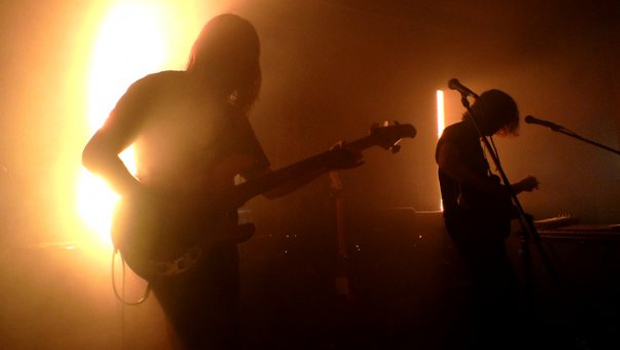
Irish instrumental rockers God Is An Astronaut released their latest album, The Age of the Fifth Sun, over a year ago but are just now hitting the U.S. to tour behind the album.
The second night of the tour was a stop at New York City's Bowery Ballroom, where a line had already begun to form three hours before the band were set to take the stage.
During the show, you could see a small but discernible group in the back of the crowd who must have expected something more along the lines of the serene post-rock stylings of Explosions In The Sky, looking on in horror at the mosh pit forming in front of them. I won't harp on just how amazing the show was, but in short: if you have the chance to see them live, take it.
I was lucky enough to catch up with the band before their show to talk about guitars, influences and a certain musical label you should probably avoid placing on them...
How do you guys feel when someone describes you as "post rock"?
TORSTEN KINSELLA: I don't have a problem with the term post rock or even it being a genre. What I mind about it is that all the groups that play "post rock" aren't connected at all to what we do, in my opinion.
Stuff like Godspeed! You Black Emperor -- who are pioneers of that genre -- I don't see anything in common with them aside from the fact that we're instrumental. That band has structures that don't follow normal structures; it's more like a film soundtrack; it's more like this mad 15-minute piece of music.
Get The Pick Newsletter
All the latest guitar news, interviews, lessons, reviews, deals and more, direct to your inbox!
We came in and we wrote stuff that has a bit more normal structures. They're a lot more melody based, so I don't see anything in common with that band whatsoever.
And when you start talking about post rock, it's the fans that really get to me, wanting to talk to us about post rock. We don't listen to Godspeed! You Black Emperor and we never will. Of course, I have full respect for the band, and they're good at what they do, but Godspeed! You Black Emperor would never use drum machine loops; it's more of an organic affair.
People say, "Oh, you're like Mogwai because you use arpeggiated guitar," while I'm saying, "Yeah, but Metallica did it with 'Fade to Black' back in 1984." That was my influence for using arpeggiated guitar, not Mogwai.
JAMIE DEAN: A lot of post rock bands try to sound post rock.
TORSTEN: Yeah, there are a lot of smaller bands -- and I wouldn't put Mogwai in that category -- that do want to be post rock bands. And that's why I think the more credible bands don't want to be called post-rock. We didn't make music to be post-rock, we did it for ourselves, and that's the biggest difference.
So who would you say most influenced you guys early on?
TORSTEN: We've always been influenced by pop music. That's why we have tracks like "Fireflies." The first thing we listened to was Thriller by Michael Jackson back in the '80s. That was the first stuff that me and Niels -- and Eddie Grant, isn't that right? [To Niels] then you got into Metallica after that...
NIELS KINSELLA: Lots of thrash metal, yeah.
TORSTEN: Anthrax and Metallica... And I didn't like it at first, I preferred AC/DC, but I finally got into Metallica. It sounded toneless to me at first, then when you really listen you start hearing the melodies. Niels is a big fan of Cliff Burton. He was so musical on the bass.
I think we got into Tool in the early '90s...
NIELS: Nine Inch Nails...
TORSTEN: Actually I remember we didn't like Nine Inch Nails at first. We listened to it but it didn't make an awful lot of sense. It only made sense after we got into Chemical Brothers and Massive Attack, and then I listened to Nine Inch Nails and suddenly it clicked; I got it. At first it was just too abstract and didn't make much sense to me, but now [Trent Reznor] is one of my favorite artists of all time.
Massive Attack was also a big influence on us, especially on our first record [2002's The End of the Beginning]. The trip-hop beats and the way the melodies are built up were really influential to us.
Regardless of what you call it, there seems to be a bit of a surge in the popularity of the instrumental rock scene lately.
NIELS: I think people like the melodies and the sounds, that's why they're here. I don't necessarily think that the scene has gotten more popular, the bands have just been around for a while and have amassed a pretty big following. I think a good example is Explosions in the Sky, who have a much bigger crowd of people that come to their shows, and those people might not even know what post rock is...
TORSTEN: Kids could be studying for their exams, and Explosions In The Sky is a great for that. It's meditative, you don't have to sing along. A lot of people will listen to Explosions In The Sky to sort of relax. I think we fall a little bit into that but we also have a far more agressive part to us that Explosions doesn't have. It's not as accessible as those guys, but I think live we have a very exciting experience that a lot of other groups in that genre don't have.
So I hate to already be looking on to the next record, but are you guys writing on the road at all?
NIELS: We still come from kind of a dance background in the '90s where we write stuff in the studio.
TORSTEN: A lot of stuff over the years was written on acoustic guitar; I put the basic chords down and then build on it. But there has to be a hook, especially in instrumental music; because you don't have a vocal hook, you have to have a musical hook. I can't really listen to an instrumental band that doesn't have the hooks. I don't care how technically proficient they are, if they don't have the hooks I just won't listen to it. That's a place where my pop background comes in; I have to have a hook.
But most of our writing definitely takes place in the studio. It's usually late at night, raining outside and I'm just pissing around trying to write something in the studio. I have a very bad memory, so usually I just leave the recorder on while I'm just playing stuff and hopefully I can just hook on to something. It takes a while sometimes because you've got feeling and you're trying to get them out.
JAMIE: I think creativity comes best around 1 a.m., 2 a.m. -- late at night, pissing rain outside. I know I for once can't really write anything decent before midnight.
NIELS: I do the same, when it's 2 a.m. and you're alone. If the wind's going outside and everyone's usually asleep, I find it easy to write then. You're tired but not really, so you're in this kinda weird, subconscious part of yourself that makes it interesting to write. I could never write in the morning, ever. [laughs]
That actually suits the band really well, as I've always pegged you guys as a "night" band. Someone like Explosions in the Sky feel more like a day band...
TORSTEN: Even their album, The Earth Is Not a Cold Dead Place, we take the opposite approach, of needing to escape from that. We're more about escapism. We're almost like a flipside emotionally to that band.
So one of my favorite things about your music is the range of guitar tones you manage to get. Talk a little bit about your pedalboard...
NIELS: Here we go...
[laughter]
TORSTEN: I spent the last six or seven months coming up with the sounds that I have for this tour, and I've never been satisfied with the sounds until now. I'm using the Axe-Fx by Fractal Audio and the midi board that comes with it. To me it's the most amazing piece of equipment I've ever come across.
I still use all of my guitar pedals with it, though. I've got a Fulltone 69, which you can't get anymore. My primary pedal for distortion would be a Fulltone OCD, run through a TIN/TEN pedal, which are these pedals made by a guy in America that allow you to add a natural distortion, but I just use it for tone shaping. After that, I use a Keeley Time Machine Pedal. That's my distortion sound: the Fulltone OCD run through a tin pedal and then the Time Machine to add kind of a harmonic resonance to the sound.
Those then go into the Axe-Fx, which I use three amps sounds with: a left, center and right. I use a Marshall sound on one side, a Mesa-Boogie on one side and in the middle I have a straight distortion sound with no amp simulation that gives my sound kind of a fizziness that sits on top.
The guitar I'm using a Gibson Les Paul Supreme Custom, which is the only Gibson guitar I've used that, to me, has a good clean sound. I've always found Les Pauls amazing for distortions but I also stuck with Fender Stratocasters for a long time because I could get a good clean sound from them. But now, with this guitar, for the first time I got a clean sound that rivals any Fender. I think it's a unique guitar and if I lost it I'd be really upset.
Is it a newer model?
It's a 2008, so it's a pretty new one. I got it at a second hand shop. My dog had just died so I thought I'd replace it with a few guitars, as sick as it was, but that's what I was doing.
I bought a few guitars. My favorite guitar which I've never taken on the road is a GIbson ES-345 from 1969. It does have a great live tone, but I still think [the Gibson Les Paul Supreme] is still better to do everything.
And I still have all my Stratocasters and Telecasters, but this Gibson's never let me down live.
I know you guys are just hitting the U.S. to tour behind your last album, but is there any timeframe you're shooting for on the next record?
TORSTEN: We've already written probably seven or eight ideas. What I kind of do is write them first and then I introduce them to the rest of the guys later. I should say that Jamie and Michael [Fenton, drums] just joined the band, so we haven't written with the guys yet. It's going to be exciting to see what happens when we get these guys' input. I think it'll be a healthy change in a new direction.
The newest album from God Is An Astronaut, Title, is out now. The band are currently on the road in the U.S. You can find a list of their upcoming tour dates here.
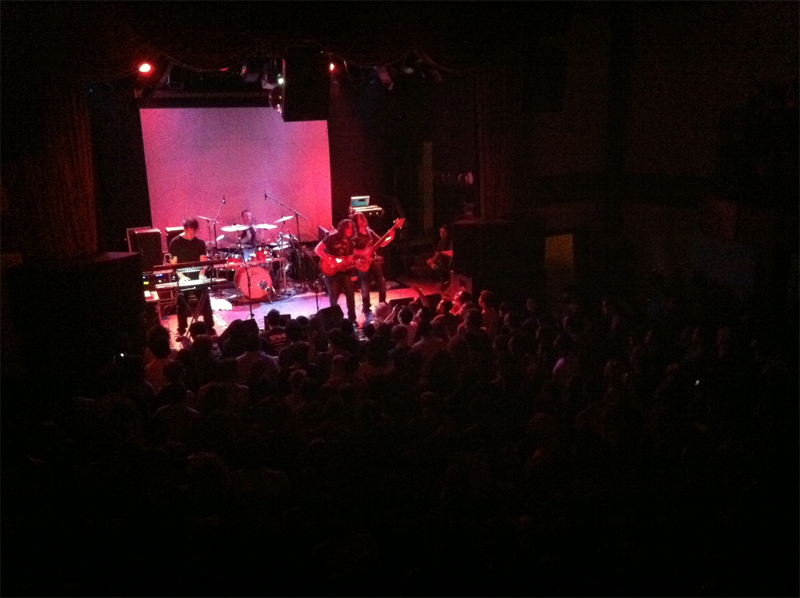
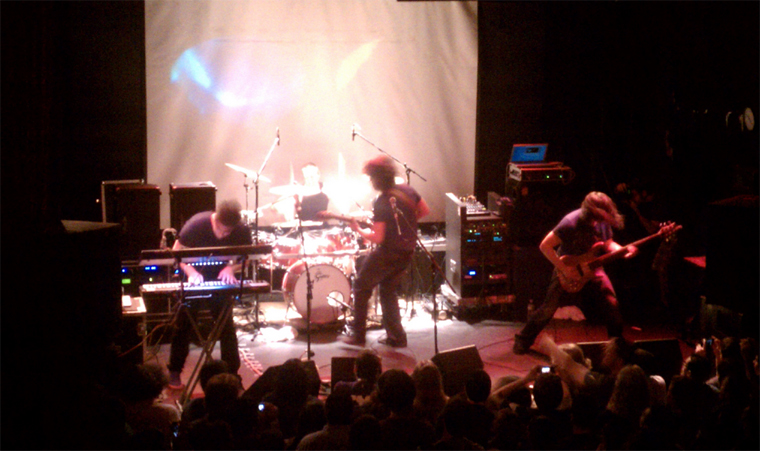
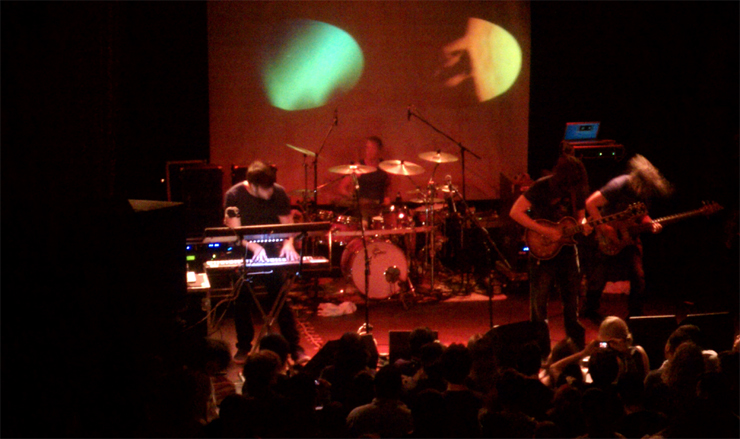
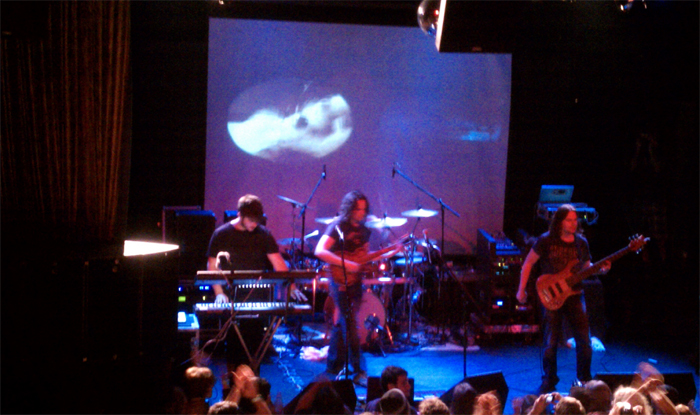
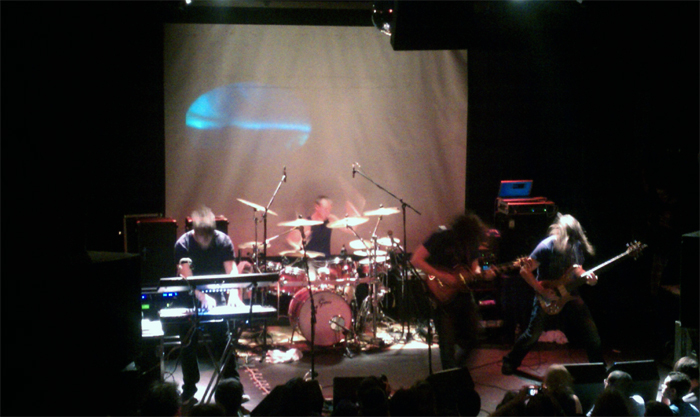

Josh Hart is a former web producer and staff writer for Guitar World and Guitar Aficionado magazines (2010–2012). He has since pursued writing fiction under various pseudonyms while exploring the technical underpinnings of journalism, now serving as a senior software engineer for The Seattle Times.
“The main acoustic is a $100 Fender – the strings were super-old and dusty. We hate new strings!” Meet Great Grandpa, the unpredictable indie rockers making epic anthems with cheap acoustics – and recording guitars like a Queens of the Stone Age drummer
“You can almost hear the music in your head when looking at these photos”: How legendary photographer Jim Marshall captured the essence of the Grateful Dead and documented the rise of the ultimate jam band











